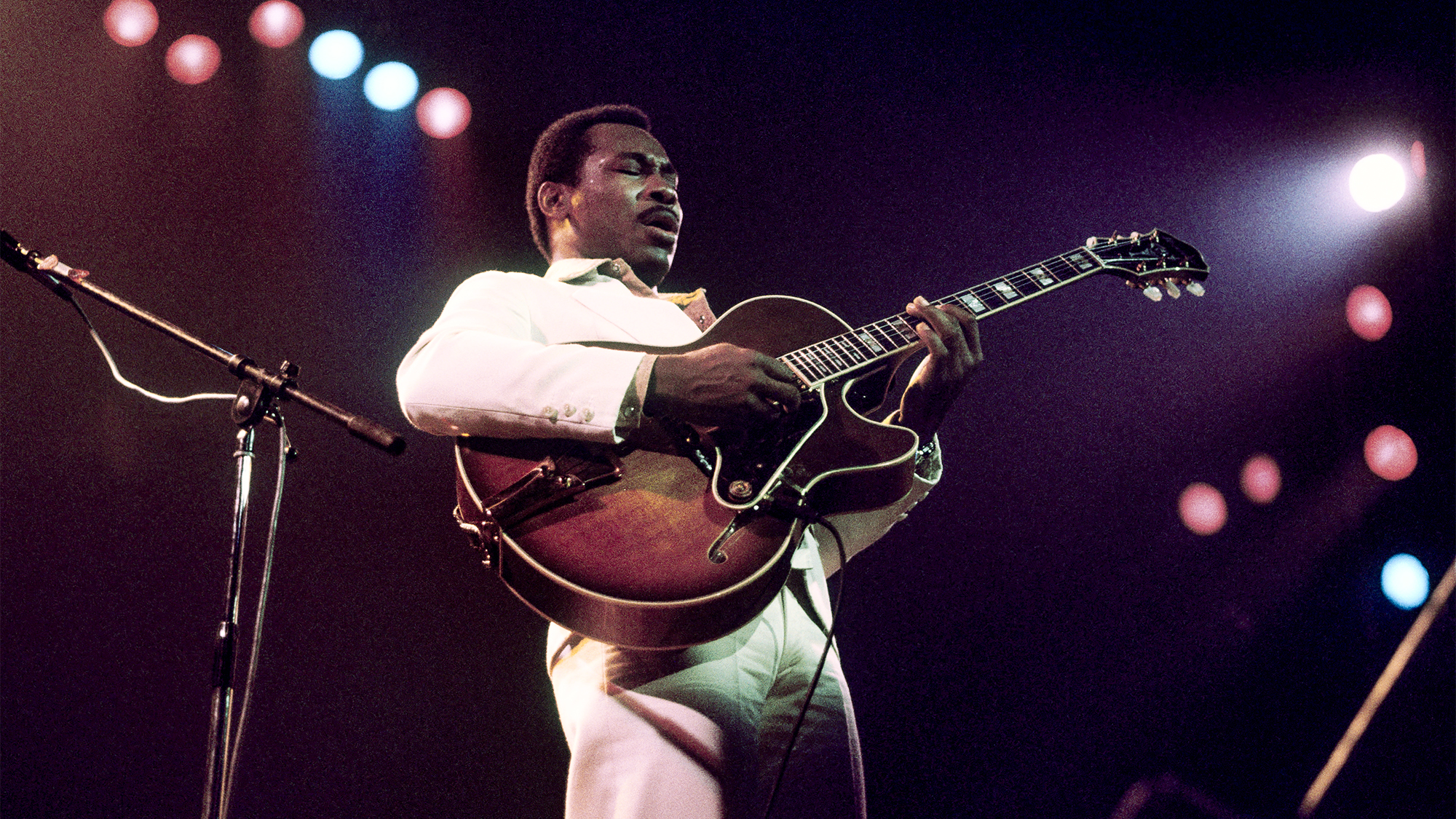“We’re focused on bringing back the rebellion and that bad-boy attitude, and raising the middle finger”: Back from the brink, Dean Guitars is here to bring the ruckus to guitar craftsmanship
After years of external and internal legal battles – some of which remain ongoing – Dean is back with a new lease on life, fresh ideas, and an even more rebellious attitude
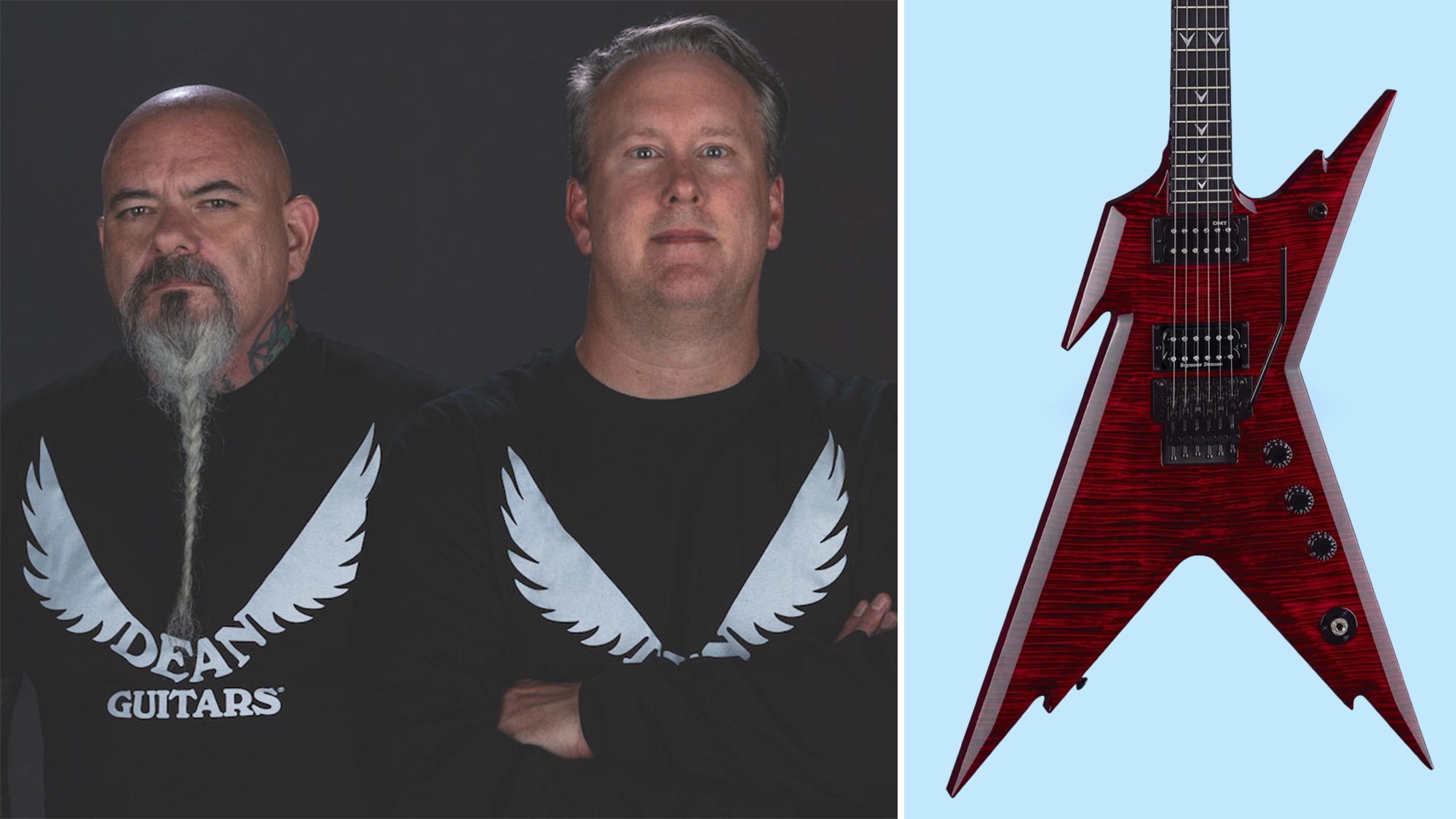
All the latest guitar news, interviews, lessons, reviews, deals and more, direct to your inbox!
You are now subscribed
Your newsletter sign-up was successful
Dean Zelinsky was just 17 when he founded Dean Guitars in 1977 with the single-minded purpose of making better instruments for rock and metal players than existed at the time. Using Gibson templates to start with, he created stylish guitars that included the V (Flying V), Z (Explorer), and the iconic ML, which combined the bottom of the V and the upper half of the Z.
They all carried a standout element in the V-shaped headstock that defined the Dean look, making them flashier and more rock than any other U.S.-made six-string electric guitars available in the late ’70s.
With artists like Elliot Easton of the Cars, Rich Williams of Kansas, and especially ZZ Top’s Billy Gibbons and Dusty Hill – who flaunted fur-covered spinning customs in the 1983 Legs video – Dean hit the bull’s-eye as the go-to brand for players seeking something closer to a Lamborghini than a Les Paul.
Zelinsky sold the company in 1991, and after languishing for several years it was purchased by Armadillo Enterprises, whose visionary founder and CEO, Elliot Rubinson, breathed new life into the business, in the process bringing in key endorsers like Dimebag Darrell, Michael Schenker, Dave Mustaine, Leslie West, and Michael Arnott, among others.
Summarizing the trajectory of Dean Guitars in the ensuing years, company president Patrick Schuleit says, “When Elliot got the company in ’96 and we launched it in ’97, he really brought it back from the dead – for lack of a better term. When Elliot passed away in 2017, there was a change for about five and a half years, and then Pam [owner and CEO Pamela Keris-Rubinson] decided she didn’t feel the company was going the way Elliot intended, so she came back in and we reorganized. We’ve been firing on all cylinders ever since, and things have been great.”
Despite ongoing legal wrangling between Armadillo Enterprises, Gibson, and other entities, the company is a major contender in the guitar market and boasts a clan of artists that includes Kerry King (Slayer), Greg Tribbett (Mudvayne, Hellyeah), Jon Donais (Anthrax), John Connolly (Sevendust), Karl Sanders (Nile), and Wayne Lozinak (Hatebreed), all of whom have signature models culled from Dean’s USA Custom Shop and offshore-produced lines.
“We had a massive demand for our Custom Shop guitars coming out of COVID,” says Chris Cannella, Dean’s brand manager and director of artist relations. “That’s spurred us on to add additional people and grow the business. At the height of COVID, our lead time ramped up to 24 months, and with some better management and some additional employees we’ve brought it down to 14 months, which is a lot more reasonable and more in line with the industry.
All the latest guitar news, interviews, lessons, reviews, deals and more, direct to your inbox!
“And we’re producing more guitars at the same time, so we’ve had a really nice win that we’re happy to continue to invest in. Because we feel like if we can produce more guitars, we have the demand that still exceeds our capacity.”
How many guitar lines are currently available from Dean?
Patrick Schuleit: “We have the ultimate offering, which is the USA Custom Shop. Then you have the Select Series, Classic Series, and the X Series. So there are four different price points in different areas, and it’s really streamlined. We’re a high-performance company and it’s all about quality first now. We’re also trying to make the same finishes available at all price points. We have some unique finishes that have been around for a long time, and we want to make sure that our customers have access to those.”
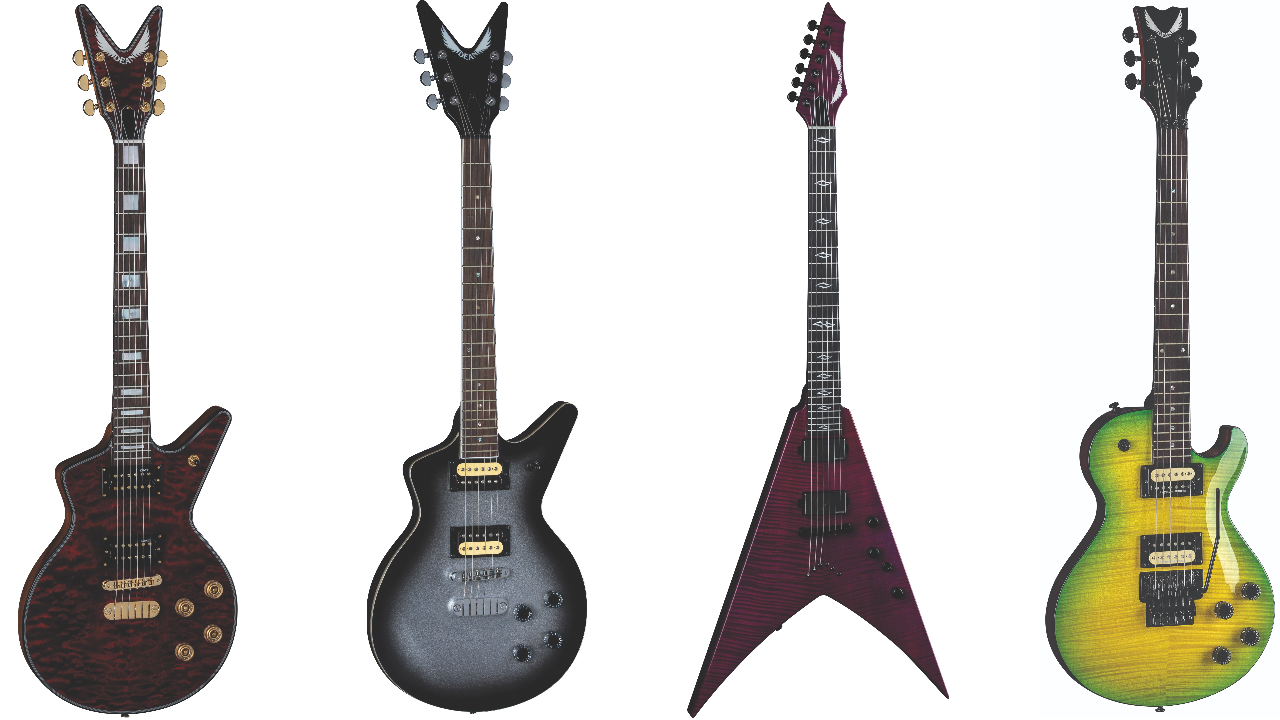
Like most other companies, you’re producing guitars here and abroad. The Vengeance Select Floyd Fluence guitar we received for review is from Indonesia. Is China also involved in your offshore production?
Chris Cannella: “The USA Custom Shop is based at our headquarters in Tampa, Florida, and then we have offshore manufacturing in the usual places, although we have very little going on in China with electric guitars.”
In today’s world, with so many quality guitars available at all price points, how do you keep Dean a brand that stands out from the crowd?
Cannella: “It’s a great time to be a consumer because everybody makes great guitars, but I always say, ‘What makes your story more relatable to the end user?’ So we’re focused on bringing back the rebellion, raising the middle finger, and bringing back that bad-boy attitude.
We build as good a guitar as anybody, and for the price I don’t think anyone can touch us
Patrick Schuleit
“Another piece of that puzzle is a renewed focus on the ML. That’s our trademark guitar that has been the hallmark of the brand. We’re going to be completely focused on getting as many iterations of the ML into the market, because for a long time we didn’t really do that. It’s really important to us to have all different versions and flavors of the ML available, because there’s a lot of customers for that guitar and it’s uniquely Dean.”
How do you balance the need to trumpet your legacy with being innovative and introducing concepts that appeal to modern players?
Schuleit: “We pride ourselves on the fact that we’re not stuck in the past. That’s why we have the Classic Series, which is the more traditional guitar that everybody is used to. But with the Select series we’ve been teaming up with different companies and introducing even more innovation, because, as we all know, guitar players are getting better and demanding higher-performance tools.
“So you can take something as classic as an ML and add stainless-steel frets, glow-in-the-dark side dots, Babicz and Evertune bridges, and all different types of things that can be there for the modern player. There are many great pickups out there; we use Seymour Duncan, Fishman Fluence, and EMG. But we also hand-wind our own pickups, the DMTs, and we’re actually adding some of those into the import line.”
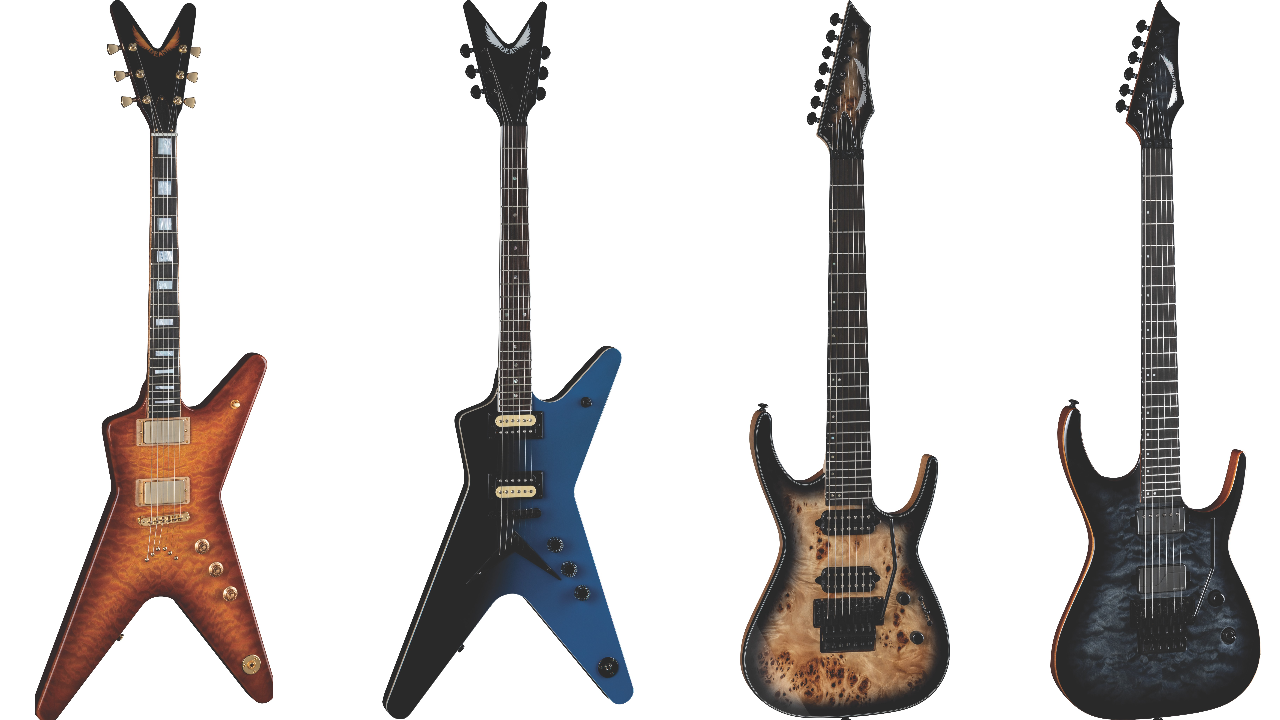
What are some of the advantages of building pickups in-house?
Cannella: “We’ve got an amazingly talented team of musicians in the building, and as far back as 2006 we had this idea with one of our key employees – a guy named Pat Baker – to start winding pickups, and we’ve gotten that going and have been doing it for a number of years. We’ve had a number of artist-endorsed pickups – the Leslie West Mountain of Tone pickup has consistently been our best seller, and we’ve had some other versions of that.
“Pat has his own custom pickup called the Baker Act, and we’ve been doing the Nostalgia vintage-style humbucker and it’s a fantastic pickup. They’re hand-made and we’re really proud of those. Most of them end up in our guitars so we don’t have a lot of them available for resale. It hasn’t been a priority like it should be, but that’s something we’re actively working on in the background.
“We also have something coming out called the Nefarious, which is a vintage-style pickup that’s good for modern metal. We’re just trying new stuff. Sometimes we’ll even have the employees experiment and come up with ideas. They’ll show them to us and say, ‘We made this with wooden bobbins and tried this many winds of this gauge of wire and these types of magnets.’ It’s all about trying something new. They’ll come up with some really neat things, and it’s exciting.”
What is important for people to keep in mind about Dean these days?
Schuleit: “We build as good a guitar as anybody, and for the price I don’t think anyone can touch us. We’re still at the reasonable end of what a U.S.-made custom shop guitar can cost, and that’s really significant.”
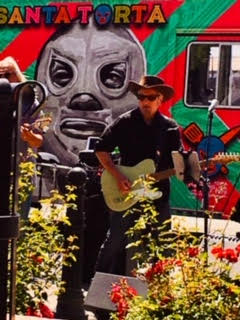
Art Thompson is Senior Editor of Guitar Player magazine. He has authored stories with numerous guitar greats including B.B. King, Prince and Scotty Moore and interviewed gear innovators such as Paul Reed Smith, Randall Smith and Gary Kramer. He also wrote the first book on vintage effects pedals, Stompbox. Art's busy performance schedule with three stylistically diverse groups provides ample opportunity to test-drive new guitars, amps and effects, many of which are featured in the pages of GP.

